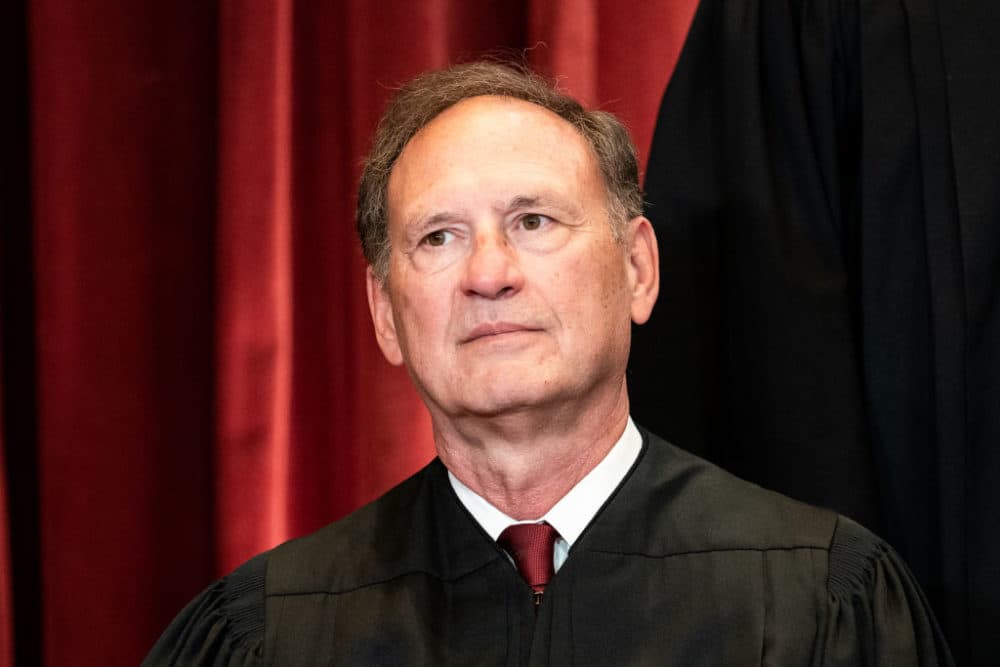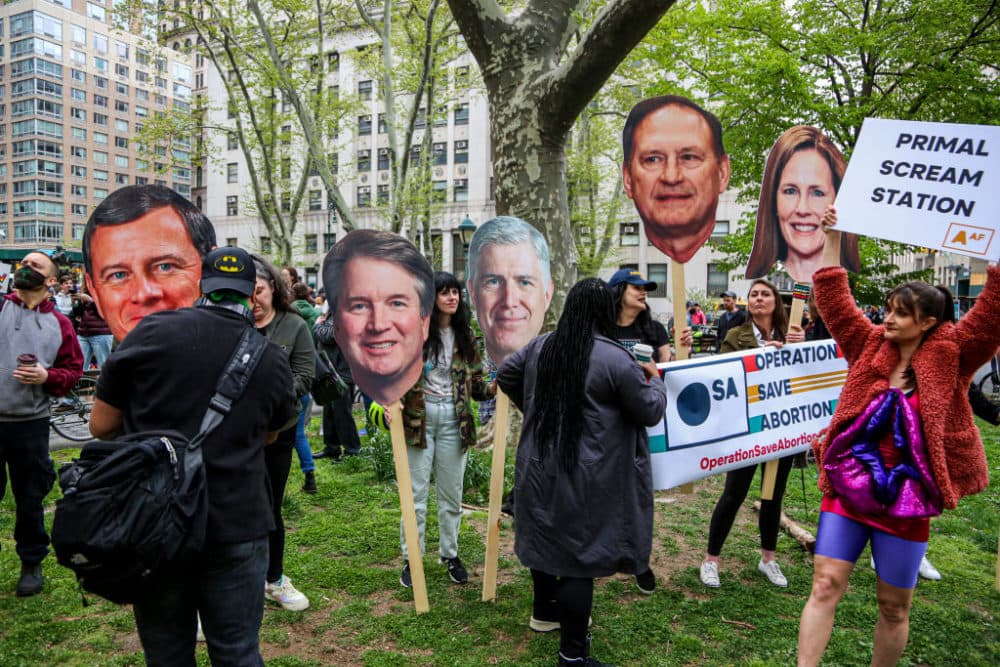Advertisement
Commentary
A basic and ugly view of women's rights

The replacement of Ruth Bader Ginsberg by Amy Coney Barrett on the Supreme Court cemented a religious conservative majority to the right of Chief Justice John Roberts. President Trump guaranteed that his three appointees to the high court would overturn Roe, and so, I anticipated that a post-Roe world was coming. Like many, I was prepared for what the opinion overturning the landmark case might say.
But I was shocked to see how Justice Alito advanced his view in a draft opinion leaked last week. Despite the formal armature of footnotes and legalese, this opinion represents a basic and ugly view of women’s rights. It asserts that because there was a time when women had no rights at all, we should not expect to have any now.
I expected Alito to spell out a radical shift in American life, wiping away 50-plus years of privacy doctrine. I even thought he’d undercut the due process clause of the 14th amendment. But I didn’t expect him to wipe out the entire history of the nation, and argue that we should return to a time in the 1700s when women had no rights at all. Alito’s draft opinion in Dobbs would equip states to begin immediately stripping women of bodily and decisional autonomy guaranteeing abortion rights, as part of privacy (in Roe) and liberty (in Casey).
The country is deeply divided along political lines. It’s now commonplace to see polls showing a massive majority of Republicans or Democrats on one side of an issue — like COVID-19 vaccines and masks or the legitimacy of President Biden’s victory in the 2020 election. Yet in the midst of such partisan division, American opinion on abortion rights has remained stable over the past four decades.
You would not know this from reading Alito’s opinion.

In the first sentence of the Dobbs draft, he misstates public opinion. He substitutes consensus with an ideological view: “Abortion presents a profound moral issue on which Americans hold sharply conflicting views.” Through this assertion, he compares the majority’s acceptance of abortion and a religious minority’s deeply held and fervent view of fetal life. This is a false equivalence. While many Americans might hold complex ethical views about abortion, they are agreed about a woman’s right to make that choice for herself.
Some of Alito’s rhetorical flourishes may not survive in the final opinion. For example, the kicker to this sentence — “Until the latter part of the 20th century, there was no support in American law for a constitutional right to obtain an abortion” — is “Zero. None.” That reveals a zealot’s glee. That’s a small point, but along with the reintroduction of crude language from the violent anti-abortion movement like “abortionist” and “unborn human beings” and even, the Malthusian reference to the need for a “domestic supply of infants,” this is ideological warfare dressed up in legal language.
Alito is on a mission to locate an origin that will erase the rights of women and restart history so that it produces a different outcome: one in which women’s rights cannot be guaranteed or even expected, because we haven’t always had them. In the post-Roe world presaged by Dobbs, women are illegitimate citizens, our rights are gifts that only men can bestow or withold.
While many Americans might hold complex ethical views about abortion, they are agreed about a woman’s right to make that choice for herself.
Roe established that abortion — choosing one, providing one — is protected by the right to privacy. Privacy doctrine emerged through related decisions that draw a line around the body as a space the law cannot cross. Griswold, which made marital contraception legal, famously describes the intolerable specter of the police barging into bedrooms and rifling through drawers. Lawrence extends this right for LGBTQ people and consenting sex for adults. Privacy not only protects the body, but the spaces in which we conduct a range of personal actions. Casey, which the Court seems likely to strike down, safeguards abortion further by protecting it as liberty. And liberty is impossible to imagine without privacy.
It's important that Alito sought precedent in a period before the founding of the United States. When the Supreme Court drags women back to the 17th century, it will wipe away the entire history of the republic to do so. It will take us to a time when women had no rights and no status as legal subjects. When we were our father’s and then husband’s property.
Beyond the abortion issue, it took a long time to change how women are treated in this country. You’ll recall it wasn’t until 1920, when women finally had the right to vote; it wasn’t until 1974 when women were guaranteed the right to a get a credit card in their own name.
Nothing about the expansion of our lives beyond the limitations of the most fringe interpretation of our value -- as mere reproductive vessels -- is dissoluble from the right to control our fertility.
This sounds archaic because it is. Most people in the U.S. don’t think this way now, nor did they in 1973 when Roe was decided.
If the leaked opinion stands, a chasm will open between a world in which abortion was legal and one in which the full force of the law will be directed to punish anyone who seeks, receives, assists in, or provides one. The violence of this rupture is impossible to overstate. The Supreme Court plans to strip away a right that has been part of American life for 50 years. Nothing about women’s economic, educational, social, or legal attainment over this time span is separable from the right to abortion. Nothing about the expansion of our lives beyond the limitations of the most fringe interpretation of our value — as mere reproductive vessels — is dissoluble from the right to control our fertility.
Court historians observe that it can take years for justices to settle into their roles on the Court. But the three Trump-appointed justices — Neil Gorsuch, Brett Kavanaugh, and Amy Coney Barrett — have only been on the Court five, three, and one year(s), respectively. This inexperienced core will do what the Court has not done in my lifetime: strip away a right. They will not tweak or otherwise slightly shift it. They are poised to overturn one of the Court’s most important decisions of all time, and certainly one for women: the fundamental right to control our own bodies and fates.
